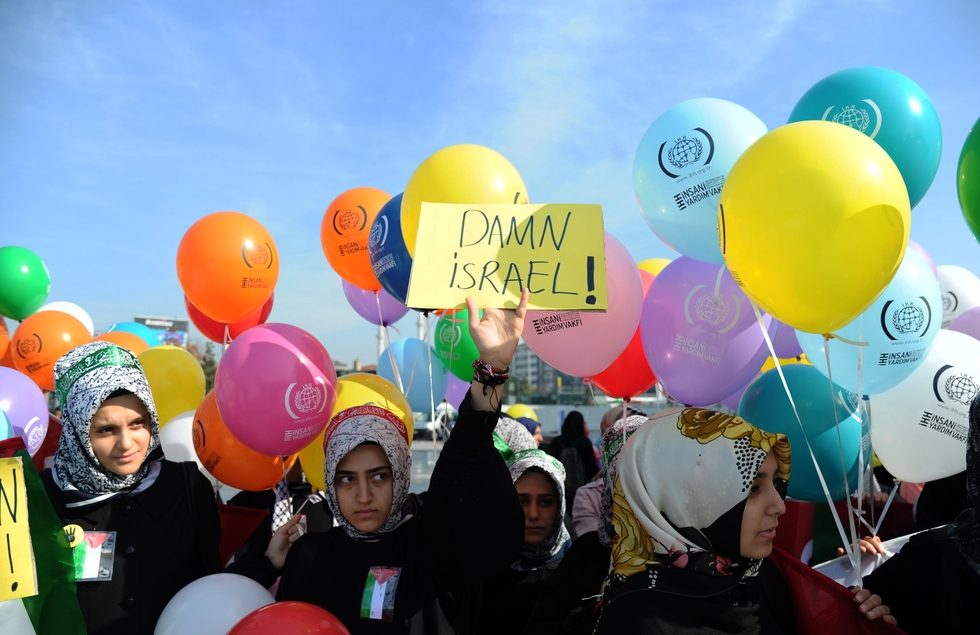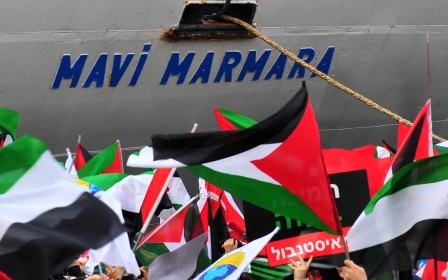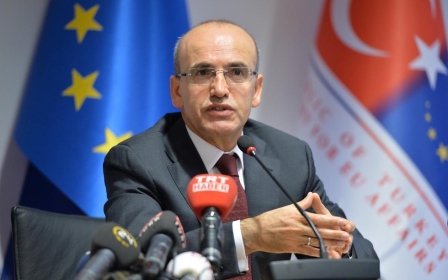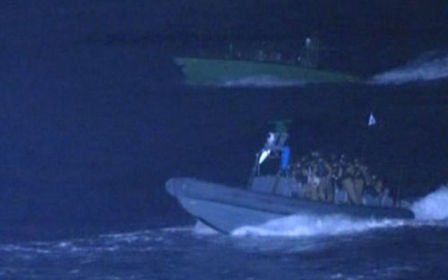2010 flotilla organisers slam 'unacceptable' Israel-Turkey detente

The IHH Humanitarian Relief Foundation, the charity responsible for the ill-fated 2010 flotilla to Gaza, has slammed the announcement of negotiations for renewed diplomatic ties between Israel and Turkey.
Speaking to Middle East Eye, the Islamic charity protested against the agreement, saying it would not be changing its own position on Israel and the deaths of Turkish activists following the Israeli army raid on the Mavi Marmara in 2010.
"The agreement with Israel is not acceptable," said IHH executive board member Huseyin Oruc. "They have killed 10 humanitarian people on the high seas and they didn’t do anything up to now."
The Turkish government had previously stipulated that there would no renewal of relations with Israel until three points were met - an apology to Turkey, compensation to the victims and their families and the end of the siege of Gaza.
The first condition was met in 2013, while $20m in compensation is included in the current proposed agreement, set out on Thursday, although IHH said that its legal advisors had said that based on similar cases, compensation should be at least $1bn.
However, there has been no mention of a lifting of the siege of Gaza, which Oruc said was the crucial issue for most of those involved in the original incident.
"It was the main request from all the participants, all the families, all the members of Mavi Marmara - they were saying we are not looking for apologies, we are not looking for compensation, our main purpose for going to Gaza was to end the siege," he told MEE. "Now it is not any part of the conditions and Israel is saying it will keep the blockade and that it is their legal right."
"If the agreement is without this, it is unacceptable," he added.
IHH organised the flotilla in May 2010 in collaboration with the Free Gaza Movement, with the intention of breaking the siege imposed by Israel on the Gaza Strip in 2007. The six ships involved in the flotilla carried supplies intended to help repair Gaza following 2009's Operation Cast Lead in which over 1,400 Palestinians, largely civilians, were killed during the Israel military operation.
The Israeli army raided the Mavi Marmara in the early hours of 31 May, 2010, killing 10 passengers on board in international waters. The incident led to the breaking off of relations between Turkey and Israel, with then prime minister Recep Tayyip Erdogan describing the attack as a "cause for war".
However, relations began to thaw following the public apology from Israel in 2013.
In April of this year, Deputy Prime Minister Bulent Arinc told Israel's Channel 2 TV that better relations between Turkey and Israel would be good for the region.
"We hope that there would be more positive statements from Netanyahu over the Palestine issue, Gaza issue and the resolution in the Middle East," Arinc told the channel, the first high-ranking Turkish official to speak on Israeli TV since the collapse of relations. "We wait to see an Israeli government's strong will to end grievances between Palestine and Israel."
He also added that Turks had no ill-will towards Jews and that their only concern was with Israel's policies.
"There is no anti-Semitism in Turkey or racism. They won't find support from the public. We are truly sorry about how European and other countries lag behind Turkey in that sense."
Among the details of the agreement signed by the two countries, a new gas pipeline between Turkey and Israel is believed to be in the works.
Turkey will also ban from the country high-ranking Hamas official Saleh al-Arouri, often touted by Israel as the main suspect in the killing of three Israeli teens that eventually led to the 2014 Gaza War.
All charges levelled against Israel and its soldiers are also to be dropped as part of the agreement, another contentious issue for IHH.
"Why are we forgiving these people and how can Turkey make an amnesty for killers?" asked Oruc. "Now Israel is requesting that Turkey make a special amnesty law in the parliament. That is not acceptable."
IHH was established in 1992 originally to provide aid to Muslims suffering in the Bosnian war.
New MEE newsletter: Jerusalem Dispatch
Sign up to get the latest insights and analysis on Israel-Palestine, alongside Turkey Unpacked and other MEE newsletters
Middle East Eye delivers independent and unrivalled coverage and analysis of the Middle East, North Africa and beyond. To learn more about republishing this content and the associated fees, please fill out this form. More about MEE can be found here.




